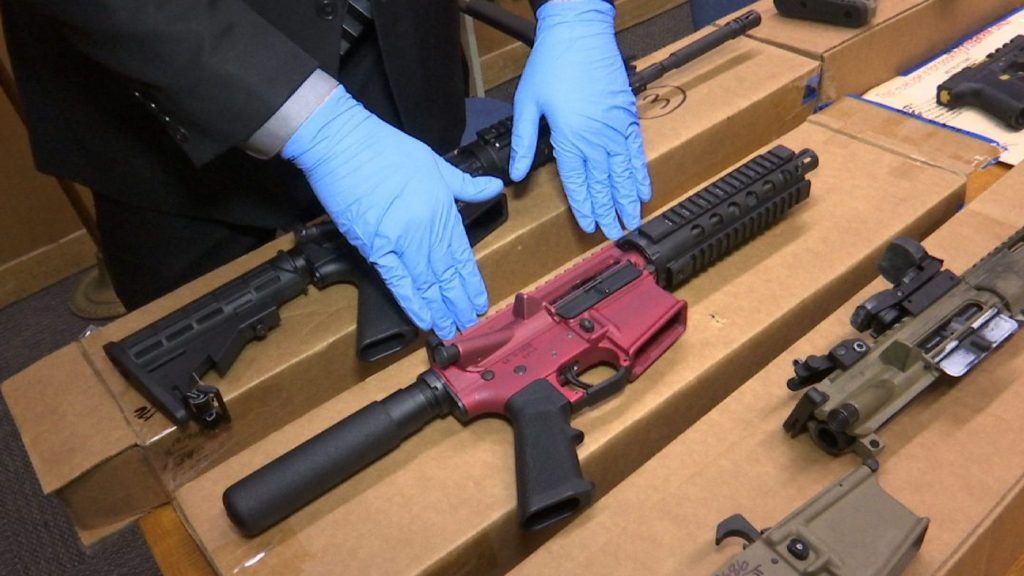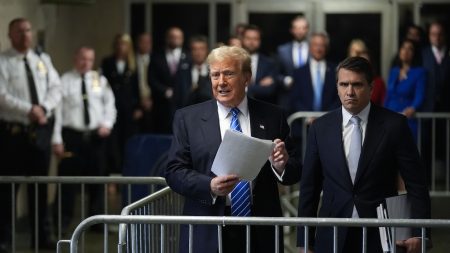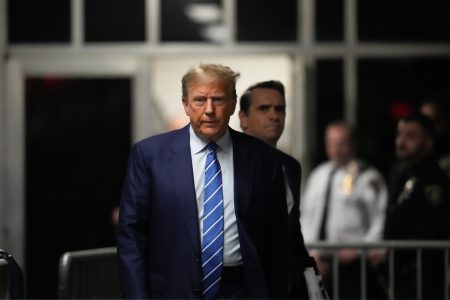The Supreme Court is going to review the Biden administration's appeal of a ruling that would cancel its “ghost gun” regulations, leading to a major confrontation on firearms next term.
The justices, after stepping in twice before on an urgent basis, have agreed to review the case on its merits based on a brief order issued on Monday.
This decision comes two years after President Biden announced a crackdown on the devices, which are firearms sold as do-it-yourself kits and are generally difficult to trace.
The 5th U.S. Circuit Court of Appeals declared the regulation illegal, supporting two firearm owners, two gun rights advocacy organizations, and five entities that make or distribute guns and challenged the crackdown.
The Justice Department then urged the Supreme Court to consider the case, cautioning that allowing the lower ruling to stand would have deadly consequences.
“According to the Fifth Circuit’s interpretation, anyone could purchase a kit online and put together a fully operational gun in minutes — no background check, records, or serial number required,” U.S. Solicitor General Elizabeth Prelogar stated in court documents on behalf of the government.
“This would result in a flood of untraceable ghost guns into our communities, endangering the public and hindering law enforcement efforts to solve violent crimes.”
The Supreme Court has previously intervened twice in favor of the Biden administration on the court’s emergency docket: Justices voted 5-4 the first time, while there were no public dissents on the second occasion.
However, neither of those decisions amounted to a final ruling on the merits of the administration’s regulation.
The case, Garland v. VanDerStok, does not involve the Second Amendment, but instead considers whether a long-standing federal gun law gives the administration the authority to regulate ghost guns.
Following Biden’s announcement, the Bureau of Alcohol, Tobacco, Firearms and Explosives (ATF) issued a rule expanding the administration’s interpretation of two provisions of the law.
The first specifies that the federal definition of a “firearm” includes certain parts kits, and the second defines “frame or receiver” to include disassembled parts that can be easily converted into a functional gun.
Together, the rule broadens federal serial number, record-keeping, and background-check requirements for ghost guns.
Both groups of challengers agreed with the Justice Department that the Supreme Court should hear the case, but they urged the justices to uphold the lower ruling.
“This expanded definition disrupts the delicate balance established by Congress between the commercial production and sale of firearms and the non-commercial making of firearms by law-abiding citizens, and the Fifth Circuit rightfully deemed it illegal,” one group of challengers stated in court documents.
The other group of challengers called the rule “unprecedented.”
“It criminalizes for the first time ever wide swaths of traditional gunmaking activities,” their attorneys wrote to the justices.
The situation adds to two big legal fights being considered this term at the Supreme Court. The judges are considering a challenge to a federal ban on domestic abusers having guns and a different challenge to the Trump-era ban on bump stocks.
Updated at 9:47 a.m. ET









